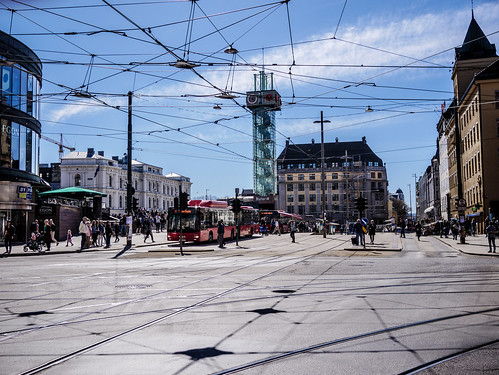I’m reading about the Scottish Enlightenment. Among other things, How the Scots Invented the Modern World: The True Story of How Western Europe’s Poorest Nation Created Our World and Everything in It [amazon] by Arthur Herman. It’s pop history by a right-winger with a perch at the Hudson Institute. It has an (ahem) boosterish quality, per the title. (As one might say: Schopenhauer’s The World As Will and Representation is rather big on will.) But shameless marketing in the title department seems not to have infected the insides to a hopeless degree. I feel I can factor out the neoliberalism in the frame to extract facts. (Anyone say this book is hopeless bullshit? If so, how so?)
After this, James Buchan, then probably back into good ol’ Jonathan Israel.
Right. I’m amused by this joker, Andrew Fletcher. Christ.
Andrew Fletcher cared passionately about freedom, but it was a peculiar kind of freedom. In 1697 he had called for a compulsory universal militia, creating four camps, one in Scotland and three in England, where every young man, on beginning his twenty-second birthday, would receive military training of the most rigorous kind. “No woman should be suffered to come within the camp, and the crimes of abusing their own bodies any manner of way, punished with death.” The next year he proposed solving Scotland’s economic depression by in effect turning the Scottish peasantry into slaves, dividing up the indigent poor among the local landlords (such as himself), and giving the latter the power of life and death over their human herds.
By instinct and temperment, Fletcher was an authoritarian anarchist.
Fletcher is bitterly opposed to union with England, which he argues will turn Scots into slaves, which would be terrible.
Almost his last words were, “Lord have mercy on my poor Country that is so barbarously oppressed.” Ironically enough, he died in the oppressor’s capital, in London — on his way home from Europe, where he spent most of the years after the Union treaty. Someone had asked him when he left Scotland, “Will you forsake your country?” He answered, “It is only fit for the slaves who sold it.” How strange that the laird of Saltoun, who had once been prepared to turn a large portion of his fellow countrymen into slaves, should use that word to describe the Scots who had repudiated his retrograde vision for the kingdom. How strange, too, that a man who claimed to despise trade and traders should choose to spend so much of his life in large, cosmopolitan cities — London, Paris, Amsterdam — that were built by mercantile wealth. It was precisely that wealth which he had hoped to deny Scotland, for the sake of an abstract and austere ideal of liberty. It was that wealth which Scotland’s urban centers now enjoyed by being part of Britain, and which promised to create a new and very different Scotland.
I get it that maybe Arthur Herman has an axe to grind on Fletcher, about whom I knew not a thing before reading this. And now I know just this, plus Wikipedia.
But I do like a good, explicit ‘in order to free them, we must enslave them’ argument. Anyone want to come out of the woodwork and defend Andrew Fletcher as not the utter tool Herman makes him out to be. Quoting Wikipedia, Thomas Jefferson said: “The political principles of that patriot [Fletcher] were worthy of the purest periods of the British constitution. They are those which were in vigour at the epoch of the American emigration. Our ancestors brought them here, and they needed little strengthening to make us what we are.”
Alisdair Macintyre evidently said: “Almost alone among his contemporaries Fletcher understood the dilemma confronting Scotland as involving more radical alternatives than they were prepared to entertain.”
Oh, plain people of the internet, what should I think of Andrew Fletcher? (And Arthur Herman’s Scotland book.)
